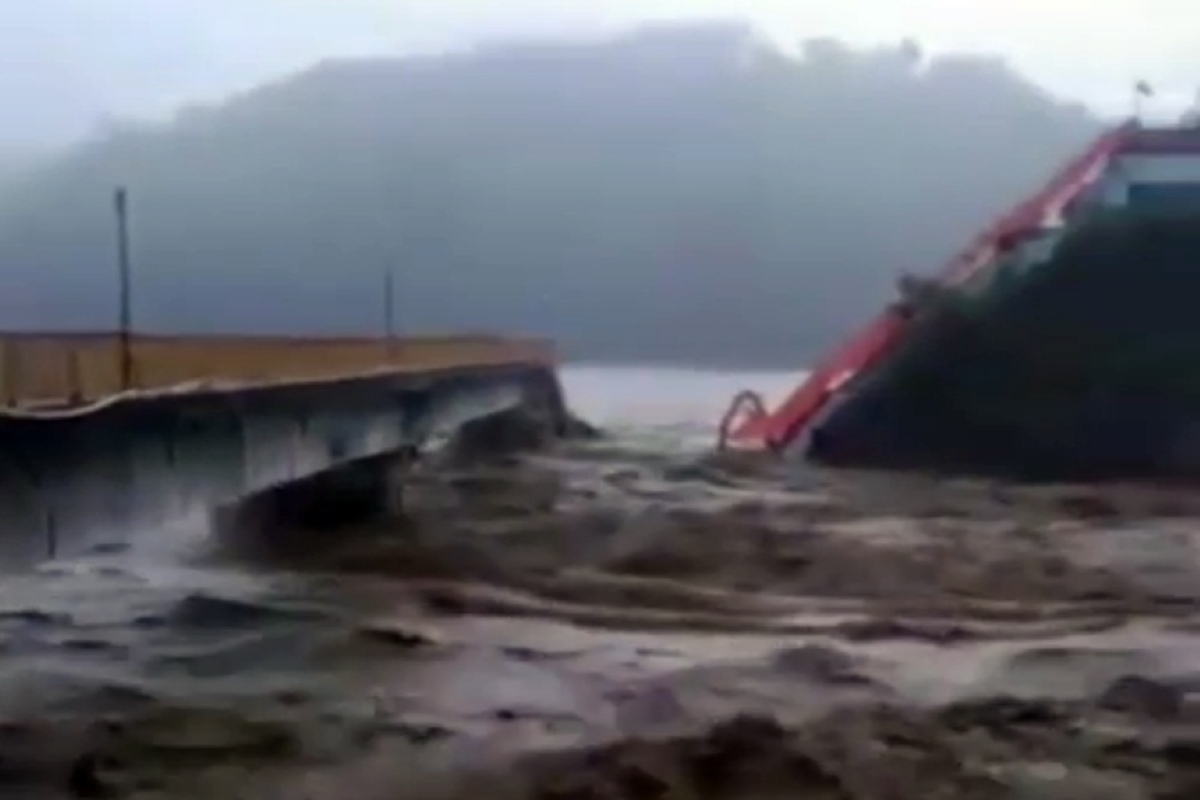Climate activist Greta Thunberg detained twice during demonstration in the Netherlands
Over 400 people were detained on Saturday, according to the police, including 12 for incitement. Activists said Thunberg was freed later.
The Gadgil Committee Report which recommended leaving the Western Ghats untouched, adopting conservation efforts in some others and opening only a few for development activities have all been spurned by all six states including Kerala.

IANS
As deluge of downpour left scores dead with many missing in Kerala and Uttarakhand, a question gradually filled social media – “Is this happening because of climate change”.
The Intergovernmental Panel on Climate Change (IPCC’s) Sixth Assessment Report of the Working Group I (AR6WGI) titled “Climate Change 2021: The Physical Science” released on 9 August this year has warned of increased variability in precipitation and with it, increased spells of heavy rainfall.
The India Meteorological Department (IMD) had issued warnings for both the states – as it had for the eastern coast and Gangetic West Bengal, Bihar, and eastern Uttar Pradesh – days ahead of what are termed as ‘extreme weather events’.
Advertisement
As per IMD predictions, the extremely heavy rainfall in Uttarakhand on Monday and Tuesday was a result of interaction between a Western Disturbance and a low-pressure area over Madhya Pradesh.
Frequency of Western Disturbances is maximum in December and January, but throughout the year, there are WDs.
“In monsoon season too, there is WD. In 2013, on 16 June, it was an active WD like the current one. The low-pressure area was laying over Uttar Pradesh. Both interacted and it caused extremely heavy rainfall leading to the Kedarnath tragedy,” recalled IMD Director General, Mrutyunjay Mahapatra.
He, however, refused to correlate the frequency of WD or the extreme weather event with climate change as he explained that interaction between WDs and low-pressure areas led to this extreme weather episode which had taken place earlier.
“The frequency of heavy rainfall events is increasing due to climate change, especially in association with low pressure areas.”
In the case of Kerala views are divided over whether climate change is responsible for the heavy rainfall, especially in October, but there is consensus regarding the destruction in the aftermath of such rains.
The Gadgil Committee Report which recommended leaving the Western Ghats untouched, adopting conservation efforts in some others and opening only a few for development activities have all been spurned by all six states including Kerala.
The Gadgil Committee had also pointed out the ecological perils for allowing infra projects in ecologically sensitive areas; none of the six states has implemented the recommendation in its entirety.
Apparently, a concrete house swallowed by the river is an outcome of neglecting warnings.
To a question, ‘If this much rain in October in Kerala is common or not?’ a senior meteorologist from IMD Pune, K.S. Hosalikar curtly said, “It is not uncommon.”
“There are two different stories for climate change – one at the regional level and the other at the global scale. But what is important is that the experts have warned how climate change will have an unequal impact in a given area. Localised extreme weather events are a cause of worry,” Hosalikar said.
Climate change or anthropogenic reasons, fact remains that the extreme weather events are set to rise. No one has disputed that.
Advertisement